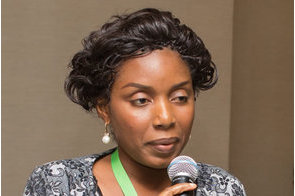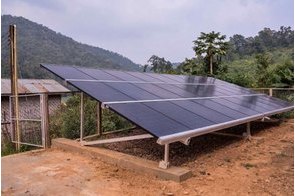Latest News
Nestlé launches gender-balance initiative to boost innovation, performance

News Highlight
The company made the announcement as part of its activities to commemorate the International Women’s Day (IWD) 2019.
Nestlé, the world’s largest food and beverage company, has launched a plan to accelerate gender balance among its workforce. The company’s Global CEO, Mark Schneider, made the announcement today as part of Nestlé’s activities to commemorate the International Women’s Day (IWD) 2019.
The IWD – which holds today, March 8 – is a day for celebrating the social, economic, cultural and political achievements of women around the world. The campaign theme of IWD 2019 is #BalanceforBetter. It is a call-to-action for driving gender balance across the world.
According to a statement released today, the Swiss company said it believes a gender-balanced workforce makes business sense and helps to boost innovation and performance, all of which would enable it to serve the needs of its consumers better.
The company’s plan for gender parity is based on three pillars: bold leadership, an empowering culture and a set of enabling practices. The company said increasing the number of women in the workforce and boosting gender balance at its Central and West Africa Region (CWAR) division is helping to drive innovation.
Some of the programmes the company plans to introduce at Nestlé CWAR include training to raise awareness on gender biases; career development and mentoring programmes for women; gender-sensitive succession planning; breastfeeding rooms and nurseries at work; and implementation of Maternity Protection Policy.
“When there’s a good mixture of men and women, team-building activities tend to be more balanced, helping to develop greater empathy among individuals and teams,” said Bunmi Etty-Mfon, Total Performance Management Manager for Technical at Nestlé CWAR. “Diversity stimulates greater effort from everyone, leading to improved decision-making.”
Rahamatou Palm, Category Manager of the company’s Nescafé business in Burkina Faso, Mali, Niger, Togo and Benin said diversity is key for the company’s growth. She said gender balance helps to diminish bias and discrimination, thereby achieving a more dynamic workplace.
The company also said it is making efforts to increase the number of women working in factories across the Africa region. It also plans to recruit a majority of women as graduate trainees. Ibukun Ipinmoye – Factory Manager at Nestlé Nigeria Flowergate Factory, which includes the first 100% female production line in – said there has been an increase in productivity at the factory.
“We soon realised that the female production lines are very productive thanks to their highly committed and collaborative spirit and their careful handling of the equipment. Gender diversity has helped to boost productivity,” Ipinmoye said.
Creating a solid pipeline of female talent across all levels enables more women to climb up the career ladder to top positions, according to Nestlé. The food manufacturing giant said this has a ripple effect of encouraging other women to achieve their goals.
Therefore, to achieve gender balance, Nestlé has urged organisations to build a solid and balanced pipeline of talent and invest in women’s education and training to create and instil diversity at all levels, and in all functions.
Related News
Latest Blogs
- How Tinubu is ensuring equitable access to public services
- Nigeria’s economic reform faces new threats
- What Ould Tah’s tenure at BADEA reveals about his AfDB candidacy
- Implementation strategy crucial for the success of 12-4 education policy
- A senator’s suspension threatens the right of representation
Most Popular News
- Artificial intelligence can help to reduce youth unemployment in Africa – ...
- Nigeria records $6.83 billion balance of payments surplus in 2024
- Tariffs stir inflation fears in US but offer targeted industry gains ...
- Rise in vaccine-preventable disease outbreaks is a threat, warn WHO, others
- Soaring civil unrest worries companies and insurers, says Allianz
- IMF warns of global public debt approaching 100 percent of GDP









